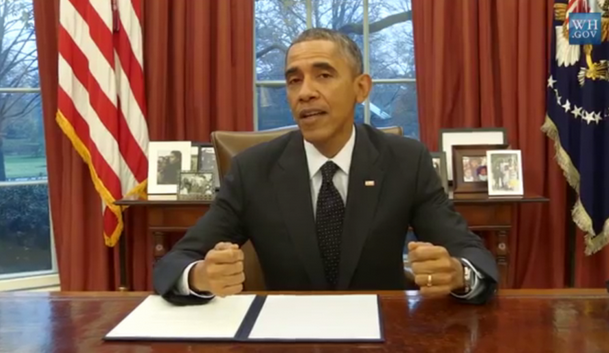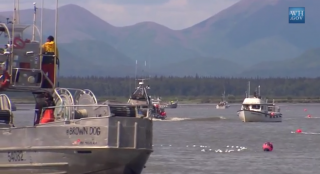
New Managing Director for Bellona Norway
The Board of the Bellona Foundation has appointed former Minister of Climate and the Environment Sveinung Rotevatn as Managing Director of Bellona No...
News

Publish date: December 17, 2014
News
President Obama announced in a video recorded Tuesday afternoon that he would protect Alaska’ Bristol Bay and nearby waters – a region of the Bering Sea that’s been at the center of longstanding Environmental Protection Agency campaigns – from oil and gas exploration.
In 2010, Obama issued a temporary protection from oil and gas exploration that was set to expire in 2017. Obama’s order on Tuesday closes a body of Arctic water roughly the size of Florida from oil and gas rigs and platforms indefinitely
Bristol Bay supports a $2 billion Native American commercial fishing industry that supplies 40 percent of the United States’ wild-caught seafood, Obama said in the White House video.
The bay is the most productive salmon fishery in the world.
“I took action to make sure that one of America’s greatest natural resources and a massive economic engine for not only for Alaska but for America, Bristol Bay, is preserved for future generations,” Obama said. “It’s something that’s too precious for us to be putting out to the highest bidder.”
“Under the authority granted to me under Section 12(a) of the Outer Continental Shelf Lands Act … this withdrawal prevents consideration of this area for any oil or gas leasing for purposes of exploration, development or production,” Obama said.

In recent weeks, it appears Obama is going for broke on his administration’s environmental legacy.
“While big petroleum’s slogan currently is ‘little time, a lot to take,’ Obama focuses on saving a pristine part of Alaska’s coast for future generations,” said Bellona President Frederic Hauge. “This shows American’s that it’s not useless to fight to keep vulnerable areas safe from the fossil industry.”
Obama has aggressively started to push new environmental policies, and Tuesday’s move to protect the ecologically sensitive Alaskan Arctic region comes as Congress’s new Republican majority sweep prepares to challenge the White House’s plans to regulate carbon emissions from power plants and the EPA’s push to effect tighter ozone-pollution rules.
Ozone is a byproduct of burning fossil fuels, and restricting it would affect energy-intensive industries like oil refineries, manufacturers using fossil fuels or fuel sold to consumers. Ozone has been shown to cause respiratory and circulatory problems.
EPA scientific advisers recommended earlier this year that the agency reduce the acceptable ozone levels between 60 parts per billion and 70 parts per billion of ozone in the air.
The powerful oil lobby the American Petroleum Institute – of which Norway’s Statoil is a part – opposes the proposed ozone restrictions, arguing industry still hasn’t caught up to 2008 ozone standards, which proposed 75 parts per billion of ozone.
Obama’s revived commitment to climate change was also on display in Lima, Peru’s climate summit last week when he dispatched Secretary of State John Kerry to the negotiations. Kerry had brokered a deal with China committing Beijing and Washington to joint emissions cuts by 2020.
Though the summit fell short of hopes, the US contribution to squeezing a concrete commitment from China was groundbreaking.
Obama’s order on Bristol Bay puts US – and hopefully international – oil giants on notice that drilling in sensitive Arctic conditions is simply too big a gamble for the environment.
The Alaska Department of Natural Resources has said the area is believed to hold significant amounts of oil and gas but that only a small number of exploratory wells had been drilled, the Politico news portal said.
All the same, The Hill reported, Bristol Bay had not been seen as a major target for the next five-year leasing plan that the Interior Department is working on. Oil industry groups have expressed more interest exploring for oil and gas in Alaska’s Chukchi and Beaufort Seas.

The Board of the Bellona Foundation has appointed former Minister of Climate and the Environment Sveinung Rotevatn as Managing Director of Bellona No...

Økokrim, Norway’s authority for investigating and prosecuting economic and environmental crime, has imposed a record fine on Equinor following a comp...

Our op-ed originally appeared in The Moscow Times. For more than three decades, Russia has been burdened with the remains of the Soviet ...

The United Nation’s COP30 global climate negotiations in Belém, Brazil ended this weekend with a watered-down resolution that failed to halt deforest...